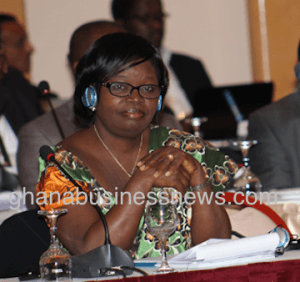Ghana launches maiden economic census report

The Ghana Statistical Service (GSS) on Tuesday launched the maiden economic census report, which constitutes the first comprehensive study to collect, compile and analyse data on the level and structure of economic activity.
The report, dubbed: “Integrated Business Establishment Survey Phase I” (IBESI) covers all sectors of the economy, which is unlike three previous industrial censuses conducted 1962, 1987 and 2003, which focused only on the industrial sector.
These economic units include all establishments undertaking some legal economic activities in Ghana.
“The GSS has, over the years, produced excellent relevant reports, which if used objectively and exhaustively, would enhance evidence-based decision-making,” Dr Philomena Nyarko, Government Statistician remarked at the IBESI report.
“The four IBESI reports to be launched today constitute a classical example. It is important to note, however, that statistical enquiries are very expensive and the only way we can have value for money is if the reports produced from the surveys are used extensively by all stakeholders,” she added.
The major purpose of the IBESI is to produce establishment level statistics needed for Ghana’s development.
Phase I of IBESI was a census of all non-household establishments irrespective of size and included those involved in economic activities in the informal and formal sectors of the economy.
In Phase II, detailed information covering all 22 sub-sectors was collected from a sample of 31,152 establishments listed in phase I.
The preparatory activities for phase I started in 2014, which was followed by field data collection which spanned September 2014 to February 2015.
The broad aim of Phase I of the IBES was to first provide the data needed to produce a business register of all establishments to serve as a basis for enhanced policy formulation and effective decision-making by government and business community.
Dr Ekwow Spio-Garbrah, Minister of Trade and Industry in a speech read on his behalf hailed GSS for coming out with the report.
He said the report would play a critical role in Ghana’s socio-economic development; as data is key in planning and decision-making.
According to the report, a total of 638,234 establishments are in operation in the country; and among the sectors, the services sector has the largest share with 82.60 per cent, followed by industry with 17.0 per cent and the agriculture (institutional) sector had 0.40 per cent establishments.
Out of a total of 634,234 establishments in the country, 177,153, representing 27.8 per cent, are located in the Greater Accra Region. This is followed by the Ashanti Region with 123,644 and the Western Region with 63,439. The region with the least number of establishments is the Upper West with 13,728.
Mr Haruna Iddrisu, Minister of Employment and Labour Relations, in a speech read on his behalf, said the report would greatly influence both employers and job seekers.
He noted that the report would serve as a valuable source of data for employers, academia and job seekers.
On national employment, the report indicated that 59.9 per cent of employed persons are engaged in the informal establishments, with the formal establishments accounting for the remaining 40.1 per cent.
On job creation, the report gives a comprehensive analysis of persons engaged in non-household activities by economic sectors and sub-regions, regions, size, age, formal and informal activities, and ownership of establishments.
The report was under the auspices of Ghana, the Dutch Government, the United Kingdom Department for Foreign and International Development and the World Bank.
“As industry, it is our expectation that the IBES will help monitor development trends while helping us to strategise on which sectors and business activities that must engage our attention and develop as growth poles to spur economic development,” the Association of Ghana Industries President Mr James Asare-Adjei stated.”
“We urge our policy makers to make effective use of such a database as IBES to guide policy formulation and national development,” he added.
Source: GNA
